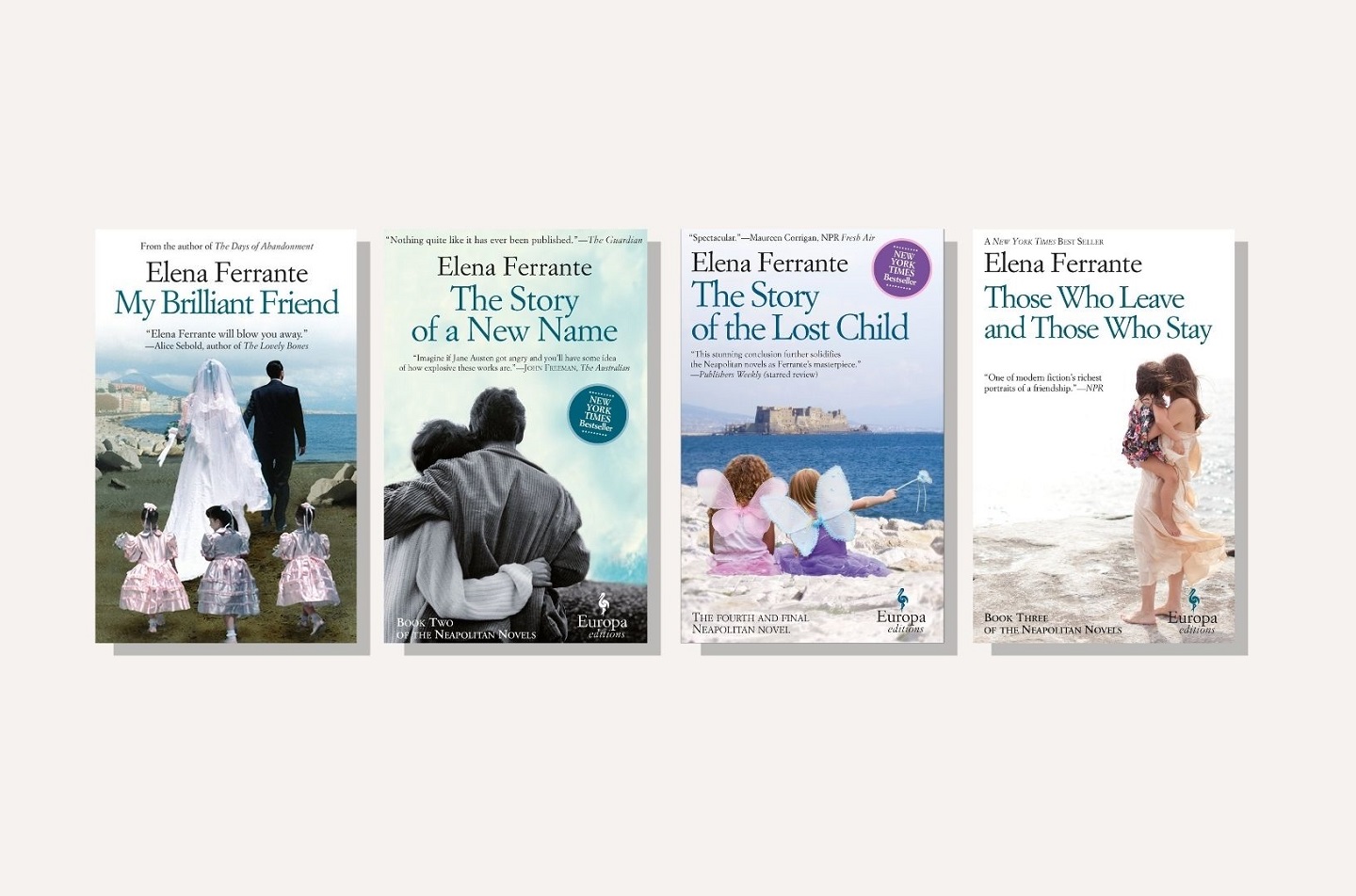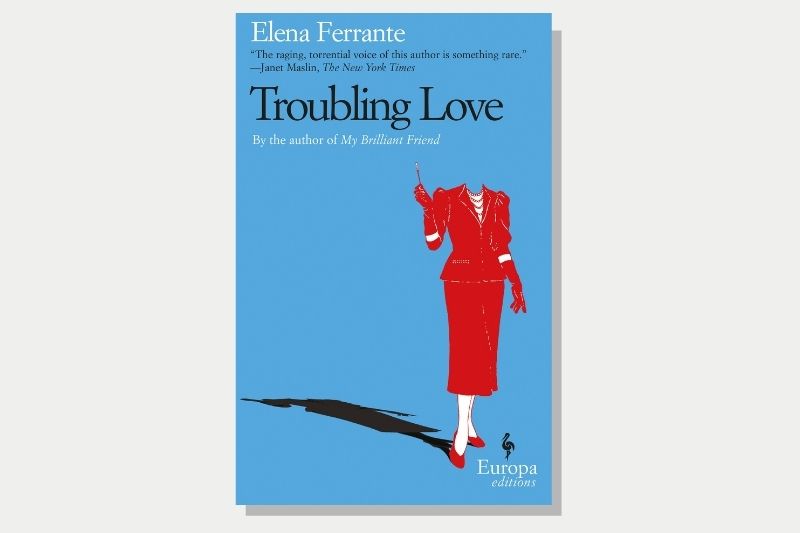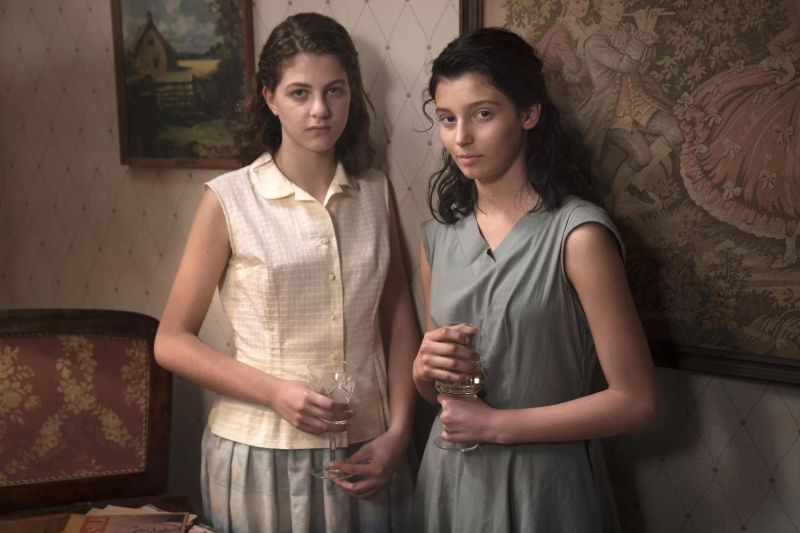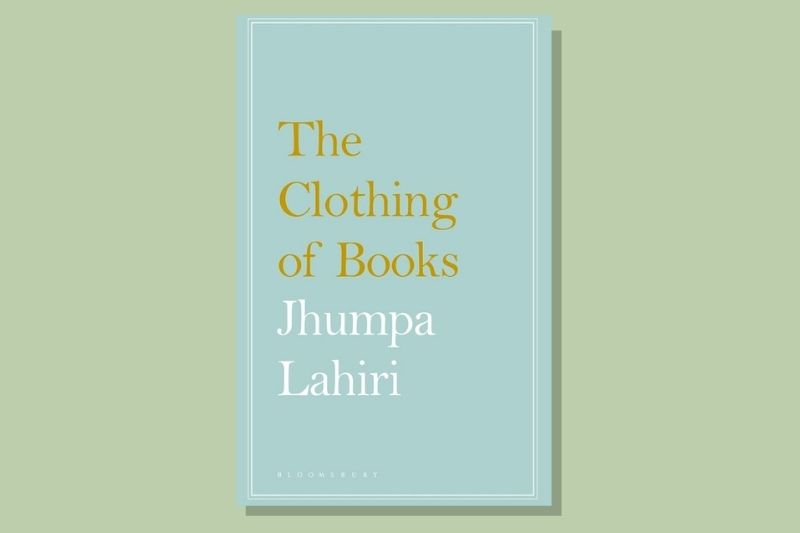
The Neapolitan Novels have sold 15 million copies worldwide (Photo: Europa Editions)
Writing is an act of courage — to share a revelation of self, in an attempt to come to terms with personal insecurities, uncertainties, perplexities while making sense of life and hoping to arrive at some human truths. Many writers must have started out scribbling notes to themselves to express tensions, anxieties and hurts. The deepest notes in much fictional writing are, arguably, personal. Some writers admit this, some allude to the fact through metaphor, yet others dismiss it altogether. A few, who do not wish to connect their work to their private identities, for various reasons, use pseudonyms.
Elena Ferrante decided at the outset of her writing career that she needed to use a fictitious name to write her stories, while admitting that they are all linked to her personal experience. The whys of this are anyone’s guess — in fact, there have been essays, speculations and even attempts at getting on her trail. Such has been the spread of “Ferrante fever” since her four-volume work, the Neapolitan Novels, was published between 2012 and 2015, that she still reigns as a literary sensation, particularly in the Western world. In 2016, Time magazine cited Ferrante as one of its 100 most influential persons.
While firmly holding on to the privacy of her identity, Ferrante has clearly and directly addressed the issue of her anonymity. In 2003, she published La Frantumaglia, a volume of letters, essays, reflections and email interviews (translated into English in 2016), all of which reveal as much of her background as she wants to share with her readers. From information provided in this volume, in 2013, critic James Wood in an article for The New Yorker, gleaned the following: “… she grew up in Naples, and has lived for periods outside Italy. She has a classics degree, she has referred to being a mother. One could also infer from her fiction and from her interviews that she is not now married.” In addition to writing, “I study, I translate, I teach”, she says.
troubling_love1.jpg

With the 1992 publication of her first novel Troubling Love, an exposé of the female psyche, Ferrante had explicitly stated via her publishers-editors that she would never do author tours, be on television or reveal her identity. She wanted her work to speak for itself, she said. Her debut novel received glowing reviews, following which she published nothing for a decade.
In 2002 and 2006, there were two more small novels — The Days of Abandonment and The Lost Daughter — again about female characters navigating the painful mess of life. This, together with her anonymity, was widely discussed on social media and in review journals. People were reading her for her style of writing, her economy of language, her simple details and her ability to create a world of human truths by imagining a time before her own, giving her readers an intimate eye-witness experience of post-war Naples during and after the 1940s, and then enabling them to translate those human truths beyond the confines of time and space to the now of everywhere.
Ferrante’s Neapolitan Novels remain the core of her work to date. The story is of two girls born in poverty in post-war Naples and their connected journeys as they go through the next six decades of their lives. Ferrante goes right past all the clichés of Italian neo-realist cinematic images that still lurk in our minds, to create a more authentic visceral depiction of a saga of two women making their way beyond the world of their working-class mothers, fathers and meagre homes to take their place in a new, more free world. The evolving relationship between the writer-narrator Elena Greco (Lenu) and Lila Cerullo, who is Elena’s deeper inspiration, is set against the gritty backdrop of Naples and that period of paucity and bleakness in Italian history, politics and people — yet we get involved by relating it to our own period and life history wherever we are. This is Ferrante’s literary achievement.
The first of the quartet, My Brilliant Friend, starts framed as a story within a story, told in flashback by Elena as narrator, who shares the same name with the writer. Even in childhood, the dark bright spark Lila leads the more reserved, reflective Elena, mostly with her guts to do whatever it takes. Lila, the shoemaker’s daughter, marries into money, and becomes as stylish as the shoes she used to design during her adolescence for her father’s shop. Elena works hard and continues on the education trail, and over time overtakes Lila as she publishes a book that is inspired by some writings by Lila during their childhood.
my_brilliant_friend_hbo.jpg

Elena’s literary career evolves and her writing reaches the level of Ferrante’s own novels in real life. In the story, Lila inspires and Elena writes. Ultimately, the story is about writing — Elena, as she is handing in her first piece of writing for a high school journal, ruminates about seeing her name in print. All writers have known that thought, that moment. Lila and Elena are two parts of the actual author, it can be read. In fact, in an email interview with Rachel Donadio, Paris-based writer for The Atlantic, in 2014, Ferrante states, “All my books derive their truth from my experience. But together Lenu [Elena’s nickname] and Lila are the ones that best capture me. Not in the specific events of their lives, nor in their concreteness as people with a destiny, but in the movement that characterizes their relationship, in the self-discipline of the one that continuously and brusquely shatters when it runs up against the unruly imagination of the other.”
To date, the Neapolitan Novels have sold 15 million copies worldwide, been published in 45 languages and were adapted for a 32-part television series in Italy. In 2018, a miniseries of two seasons of eight episodes each was produced by HBO and two Italian networks. Titled My Brilliant Friend, it focused on the quartet’s first novel. The miniseries, scripted in Italian with an all-Italian cast and set in Italian locales showing homes with laundry hanging in balconies and courtyards where privacy is non-existent, is immersive and engaging. Attention to period mise-en-scène can be seen in depicting Ferrante’s description of the remains of post-war poverty, feuding families, menacing men, raging mothers in windows, local boys and girls going steady and passionately courting, altogether creating familiar scenes from another time, of an old type of cinema, a bit reminiscent of Giuseppe Tornatore’s Cinema Paradiso.
To write anonymously is nothing new. Way back, Virginia Woolf wrote in A Room of One’s Own that Anonymous was a woman. There was a time when writings by women were not taken seriously. The stigma of publishing as a woman, as when George Eliot wrote Middlemarch, no longer exists. Now, irrespective of gender, publishers encourage fanfare for profiling and, more importantly, for sales. They want backflap pictures, readings and book signings, and writers themselves want book launches, especially for a debut work. To remain anonymous is considered a personal quirk.
the_clothing_of_books.jpg

Successful writers do tire of publishers’ requirements. Pulitzer Prize-winning writer Jhumpa Lahiri wrote a whole little book, The Clothing of Books, lamenting how book production stifled the creativity process of writers in her hallmark understated style. Lahiri confesses, “The first time I see one of my covers, while thrilling, is always upsetting … I have read hundreds of books, almost all the literature of my schooling without a summary blurb on the flap, without an author photograph. They had an anonymous quality, secretive. They gave nothing away in advance. To understand them, you had to read them. The authors I loved at the time were embodied only by their words … my first reading happened outside of time, ignorant of market, of current events.” She is celebrating anonymity here, almost wishing for it herself.
A year earlier, Lahiri, in an attempt to find meaning for herself, ventured to move to another country, Italy, and to write in another language, not naturally acquired, but learnt: Italian. This saw the birth of In Altre Parole (In Other Words), originally written as a collection of short pieces for a weekly column in an Italian news magazine. Language and identity are fundamentally intertwined, she believes. In a chapter titled “Metamorphosis”, she writes, “It’s not possible to become another writer, but it might be possible to become two.” Here again, the writer is seeking a sort of liberation from set formats, while also seeking personal freedom through an anonymity of sorts.
In an interview with Vogue India, Lahiri says, “I’ve always had this feeling wherever I go. Of not feeling fully part of things, not fully accepted, not fully inside of something. Identity has been such an explosive territory for me … so hard, so painful at times.”
Fernando Pessoa, a prolific Portuguese poet and writer, was never content to write under his own name. He had a configuration of 75 names that he referred to as his heteronyms, each with its own created writer biography and writing style. This enabled him as a writer to go beyond the confines of his singular self, he believed.
elena_ferrante-_the_lying_life_of_adults1.jpg

Ferrante may have chosen to be anonymous for various reasons initially, some of which she has revealed in interviews and writings, and it is also possible that her publishers soon found that her mystique managed to create an added dimension to her persona and increase the sale of her books. And it is likely that Ferrante herself felt truly vindicated by her original decision to remain private, as her literary reputation became a phenomenon and sales soared with each spate of writing and publication — she must have felt freed to be who she is in her personal life, while the scope and range of who she could be in her creative mind and work remained open, unhinged and unfettered for new forays into human and life truths.
Meanwhile, Ferrante’s new novel, The Lying Life of Adults, has hit the stores. The theme here is adolescence and all its questioning confusions: mothers and daughters, lying fathers, sexuality, intense pained friendships, truths and lies — no pretty pictures, nothing tidy, just messy reality which yet tells of the imperfect beauty of life and passion. It is reported that when the original Italian version of The Lying Life of Adults was published in Italy late 2019, people queued from midnight to get first copies, and “reading vigils” took place across the country. A Netflix adaptation is already in production, and the English translation, held back for several months due to the pandemic, is finally out, to get into the heads and hearts of Ferrante fans once again.
Purchase the hardcover copy of Elena Ferrante's The Lying Life of Adults for RM130.36 at Kinokuniya here.
This article first appeared on Oct 26, 2020 in The Edge Malaysia.


